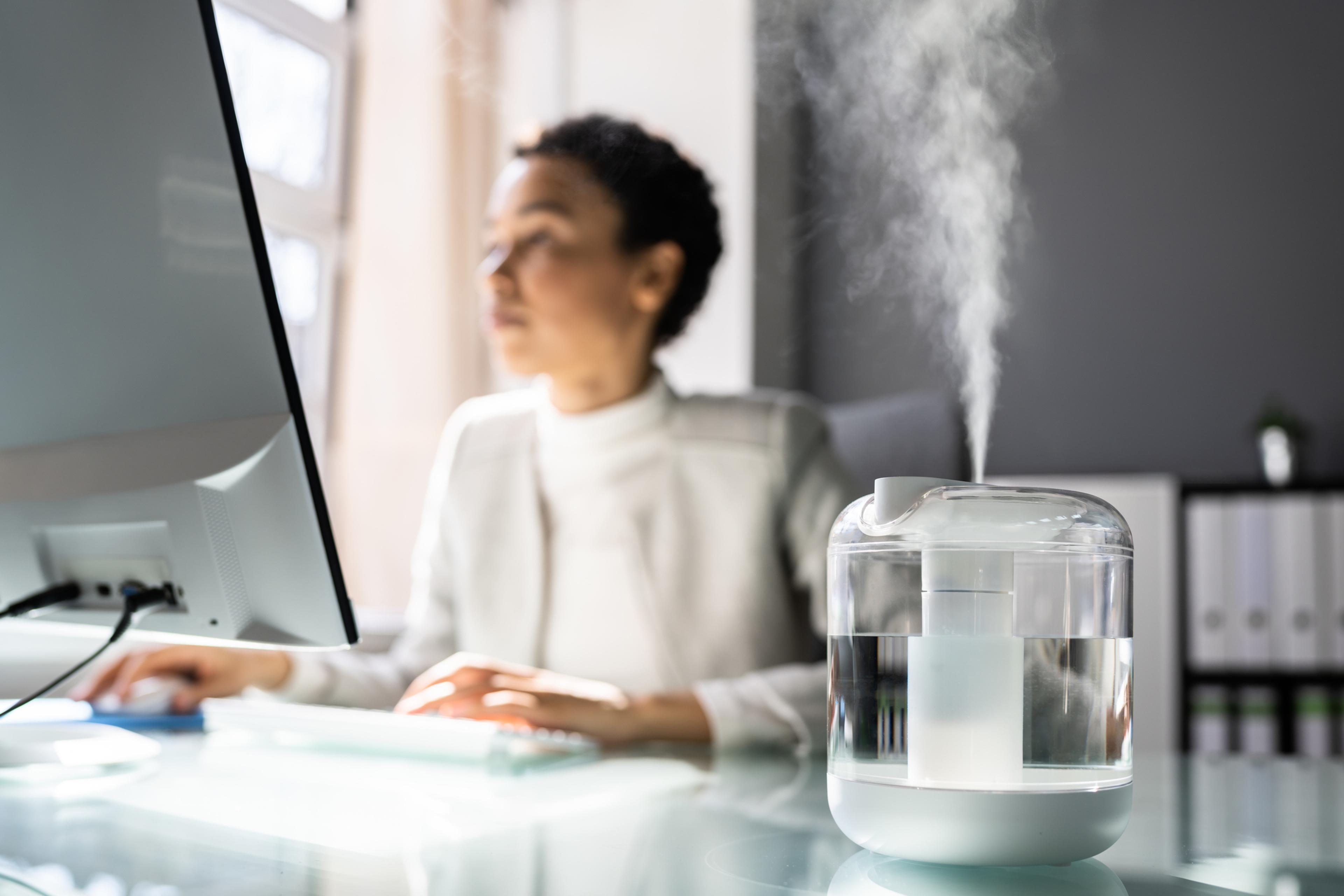Do Humidifiers Help with Allergies?
A Healthier Michigan
| 3 min read

Dry air and dust can wreak havoc on allergies, sinuses and skin.
Dry air indoors is more common during the winter. Many people use humidifiers to keep their air more humid in the winter months, but do humidifiers help or exacerbate allergies? It depends on the specific allergens and triggers involved.
How does humidity affect allergies?
Air humidity levels not only affect how humid the air you’re breathing is but can also affect certain allergens. Dust mites, which are one of the most common indoor allergens, thrive when humidity is 50% or higher, so increasing the humidity of air past 50%can worsen dust mite allergies and related sinus inflammation and discomfort. Indoor mold and mildew also thrive in higher humidity, especially at 60%or higher humidity.
If indoor air is too dry, it can dry out the nasal passages and sinuses and can exacerbate asthma and lead to respiratory infections. Individuals with asthma have respiratory systems that are less effective at naturally warming and humidifying breathed air. Dry air can also inhibit the body’s ability to produce the proper amount of tears and mucus, which are necessary to keep the eyes and respiratory system properly lubricated.
Are humidifiers good or bad for allergies?
The use of a humidifier should depend on the existing humidity and the specific allergens. Indoor air humidity can vary from season to season, day to day and room to room. It’s best to start off by checking the humidity in different areas of your home, especially living areas, areas with high foot traffic from the outdoors and rooms with higher risk of dampness, such as kitchens, bathrooms, laundry rooms and basements. The U.S. Environmental Protection Agency recommends keeping homes between 30% and 50% humidity.
How to change humidity in your home
First, check your humidity levels using a hygrometer. These can be found at most hardware or home improvement stores. If you test your humidity and find it consistently under the recommended 30%, raising the humidity with a humidifier may be helpful. You may also notice the most common symptoms of dry air, which include sore throat and dry eyes and skin. If you choose to use a humidifier, make sure to follow the manufacturer’s instructions and routinely change out the water and filters as recommended. Neglecting the water and filters in a humidifier can result in the growth of mold or mildew.
If your home is too humid, opening windows in dry weather can help to dry the indoor air out. A dehumidifier is also an option, and similarly must be maintained properly according to the manufacturer’s instructions, with the water emptied and filters changed regularly.
It can be tricky to find the right balance of humidity in a home during changing seasons. If you are unsure if your home’s humidity is affecting your allergies or not, or if you’re unsure if you have a specific allergen, you can discuss allergy testing with your doctor. There are other possible allergen culprits including radon, secondhand smoke, pet dander and indoor pollutants.





